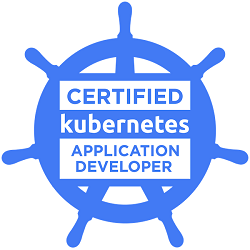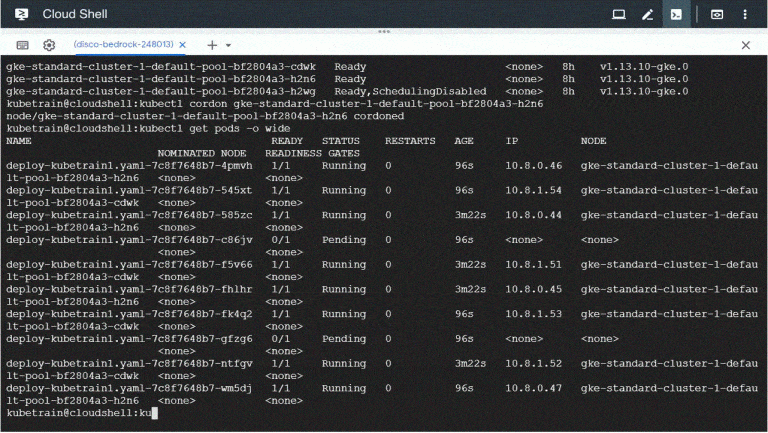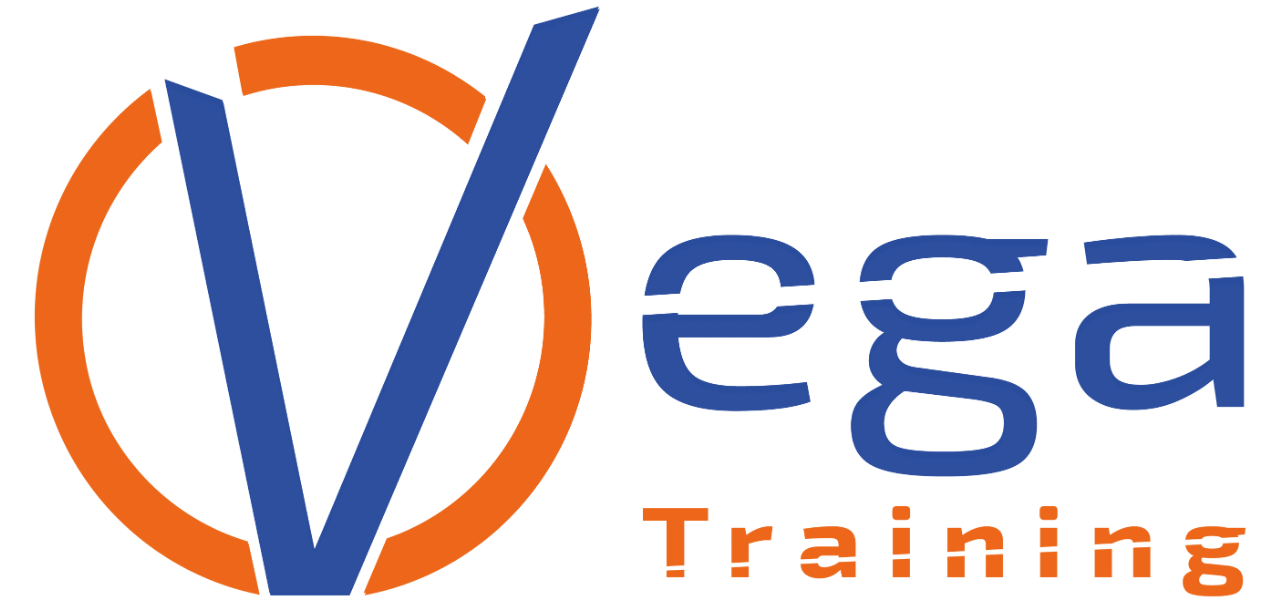Obiettivi | Certificazione | Contenuti | Tipologia | Prerequisiti | Durata e Frequenza | Docenti | Modalità di Iscrizione | Calendario

Il Corso Kubernetes Developers CKAD è progettato per insegnare come utilizzare Kubernetes per distribuire, scalare e gestire le applicazioni containerizzate. Gli obiettivi del corso includono la comprensione dell’architettura e dei componenti di Kubernetes, l’interazione con un cluster Kubernetes tramite kubectl, l’uso di manifesti YAML per definire e distribuire applicazioni, l’implementazione di servizi di rete per esporre le applicazioni, la gestione dello storage per i dati delle applicazioni, l’implementazione di best practice di sicurezza e accesso, l’integrazione di Kubernetes con i processi di Continuous Integration e Continuous Deployment (CI/CD) e, infine, la preparazione per l’esame di Certificazione Kubernetes Application Developer CKAD.
Sintesi Statistica :
- Corsi realizzati: 42;
- Numero Corsisti: 312;
- Superamento Esame: 81,35%
Contattaci ora per ricevere tutti i dettagli e per richiedere, senza alcun impegno, di parlare direttamente con uno dei nostri Docenti (Clicca qui)
oppure chiamaci subito al nostro Numero Verde (800-177596)
Obiettivi del corso
Di seguito una sintesi degli obiettivi principali del Corso Kubernetes Developer CKAD:
- Comprendere l’architettura di Kubernetes.
- Utilizzare manifesti YAML per applicazioni.
- Creare servizi di rete in Kubernetes.
- Gestire lo storage per applicazioni Kubernetes.
- Integrare Kubernetes nei processi CI/CD.
Certificazione del corso
Esame Certified Kubernetes Application Developer CKAD; Questo Esame valuta la capacità dei candidati di progettare, costruire, configurare e esporre applicazioni su Kubernetes. Copre argomenti come concetti fondamentali di Kubernetes, configurazione, design dei Pod multi-container, osservabilità, design dei Pod, servizi e networking, persistenza dello stato, sicurezza e gestione del ciclo di vita delle applicazioni. Questo esame è cruciale per dimostrare la competenza pratica nel campo dello sviluppo di applicazioni Kubernetes.
Contenuti del corso
Kubernetes Architecture
- What Is Kubernetes?
- Components of Kubernetes
- Challenges
- The Borg Heritage
- Kubernetes Architecture
- Terminology
- Control Plane Node
- Control Plane Node Components
- Worker Nodes
- Pods
- Services
- Operators
- Single IP per Pod
- Networking Setup
- API Call Flow
- CNI Network Configuration File
- Pod-to-Pod Communication
- Resource Recommendations
Build
- Container Options
- Containerd
- Docker Containers
- Container Runtime Engine
- Containerizing an Application
- Rewrite Legacy Applications
- Creating the Dockerfile
- Hosting a Local Repository
- Creating a Deployment
- Running Commands in a Container
- Multi-Container Pod
- Readiness Probe, Liveness Probe, and Startup Probe
- Testing
- Helm
Design
- Traditional Applications – Considerations
- Decoupled Resources
- Flexible Framework
- Managing Resource Usage
- Using Label Selectors
- Using Annotations
- Multi-Container Pods
- Sidecar, Adapter, Ambassador, and InitContainers
- Custom Resource Definitions
- Jobs
- CronJobs
Deployment Configuration
- Volumes Overview
- Introducing Volumes
- Volume Spec
- Volume Types
- Shared Volume Example
- Persistent Volumes and Claims
- Phases to Persistent Storage
- Persistent Volume
- Persistent Volume Claim
- Dynamic Provisioning
- Secrets
- Using Secrets via Environment Variables
- Mounting Secrets as Volumes
- Portable Data with ConfigMaps
- Using ConfigMaps
- Deployment Configuration Status
- Scaling and Rolling Updates
- Deployment Rollbacks
Understanding Security
- Overview
- Accessing the API
- Authentication
- Authorization
- RBAC and the RBAC Process Overview
- Admission Controller
- Security Contexts
- Pod Security Policies (PSPs)
- Pod Security Standards
- Network Security Policies
- Network Security Policy Example
- Default Policy Example
Exposing Applications
- Service Types
- Services Diagram
- Service Update Pattern
- Accessing an Application with a Service
- Service Without a Selector
- ClusterIP
- NodePort
- LoadBalancer
- ExternalName
- Ingress Resource
- Ingress Controller
- Service Mesh
Application Troubleshooting
- Overview
- Basic Troubleshooting Steps
- Ongoing (Constant) Change
- Basic Troubleshooting Flow: Pods
- Basic Troubleshooting Flow: Node and Security
- Basic Troubleshooting Flow: Network
- Monitoring
- Logging Tools
- Monitoring Applications
- System and Agent Logs
Attività Laboratoriali
- How to connect to lab
- Work with the cluster
- Imperative and declarative
- API
- Namespace
- Labels
- Running Pods
- Pod Lifecycle
- Implementing container probes
- System Pods and Controllers
- Create Deployment
- Create Deployment-Replicaset
- Update a Deployment
- Rolling back a Deployment
- Scaling a Deployment
- Running Multi-container Pods
- Running Sidecar Containers
- Running Adapter Containers
- Storage Static Provisioning
- Storage Dynamic Provisioning
- Environment Variables
- Secrets
- Private Container Registry
- ConfigMap
- Services
- Service Discovery
- Ingress
- Logging
- Troubleshooting Workloads
- Authentications
- Manage Authorizations
- kubeconfig and context
- RBAC
Tipologia
Corso di Formazione con Docente
Docenti
I docenti sono Istruttori Certificati Kubernetes CKA e CKAD e certificati in altre tecnologie IT, con anni di esperienza pratica nel settore e nella Formazione.
Infrastruttura laboratoriale
Per tutte le tipologie di erogazione, il Corsista può accedere alle attrezzature e ai sistemi presenti nei Nostri laboratori o direttamente presso i data center del Vendor o dei suoi provider autorizzati in modalità remota h24. Ogni partecipante dispone di un accesso per implementare le varie configurazioni avendo così un riscontro pratico e immediato della teoria affrontata. Ecco di seguito alcuni scenari tratti dalle attività laboratoriali:

Dettagli del corso
Prerequisiti
Conoscenza di base runtime dei container e dell’architettura dei microservizi.
Durata del corso
- Durata Intensiva 4gg;
Frequenza
Varie tipologie di Frequenza Estensiva ed Intensiva.
Date del corso
- Corso Kubernetes Developer CKAD (Formula Intensiva) – 02/12/2024 – 09:00 – 17:00
Modalità di iscrizione
Le iscrizioni sono a numero chiuso per garantire ai tutti i partecipanti un servizio eccellente.
L’iscrizione avviene richiedendo di essere contattati dal seguente Link, o contattando la sede al numero verde 800-177596 o inviando una richiesta all’email [email protected].


